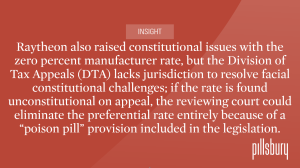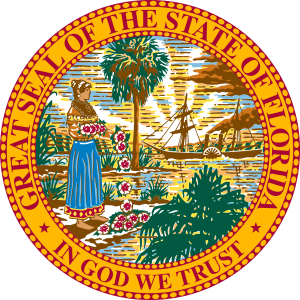
An administrative law judge with the New York State Division of Tax Appeals held that the federal Internet Tax Freedom Act (ITFA) preempted the imposition of New York franchise tax and a metropolitan transportation business tax (MTA) surcharge on gross receipts from sales of asymmetric digital subscriber line (ADSL) and fiber broadband aggregation and access services (Fiber Broadband).
 SeeSALT Blog
SeeSALT Blog


 The California Office of Tax Appeals (OTA) held a California resident was not entitled to claim an other state tax credit (OSTC) for taxes paid to Massachusetts because gain from the sale of an LLC membership interest was wholly sourced to the taxpayer’s domicile under California law.
The California Office of Tax Appeals (OTA) held a California resident was not entitled to claim an other state tax credit (OSTC) for taxes paid to Massachusetts because gain from the sale of an LLC membership interest was wholly sourced to the taxpayer’s domicile under California law. 
 On March 1, 2023, a Florida trial court confirmed that costs of performance (COP) sourcing, not market-based sourcing, is Florida’s standard methodology for sourcing service receipts for apportionment purposes. In Billmatrix Corp. v. State of Florida, Department of Revenue, No. 2020-CA-000435 (Fla. 2d Cir. Ct. Mar. 1, 2023), the court strongly rebuked the Florida Department of Revenue for attempting to apply market-based sourcing in contravention of its own COP sourcing regulation.
On March 1, 2023, a Florida trial court confirmed that costs of performance (COP) sourcing, not market-based sourcing, is Florida’s standard methodology for sourcing service receipts for apportionment purposes. In Billmatrix Corp. v. State of Florida, Department of Revenue, No. 2020-CA-000435 (Fla. 2d Cir. Ct. Mar. 1, 2023), the court strongly rebuked the Florida Department of Revenue for attempting to apply market-based sourcing in contravention of its own COP sourcing regulation. 